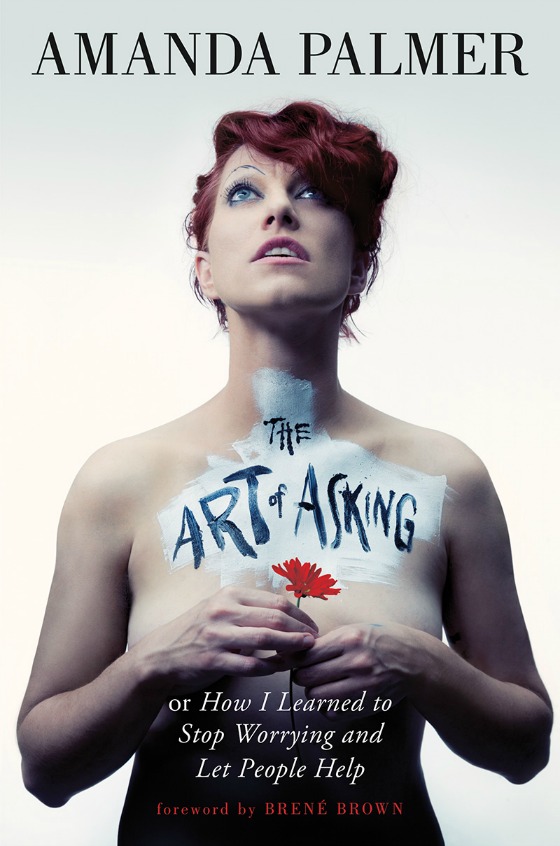
Dresden Dolls’ Amanda Palmer on The Art of Asking

Before I start to talk about Amanda Palmer‘s triumphant book The Art of Asking, take a minute (and then take another 12 minutes) and watch her incredible TED Talk. I’ll be right here when you’re done.
There’s a reason why this talk has about 8 million views (probably only a million are mine). Amanda Palmer (often called “Amanda Fucking Palmer”– her social media signature is AFP) is half of the punk-cabaret duo, The Dresden Dolls. She is also part of the Evelyn-Evelyn duo, and is the ringleader of Amanda Palmer and the Grand Theft Orchestra.
The reason why The Art of Asking touched such a nerve with me has far less to do with Amanda’s art than how she is an artist. Her interaction with the world via music, fan-interaction, and response to criticism is so genuine and gentle, ballsy yet vulnerable. The book is an encouragement to everyone to be genuine and gentle, and ballsy yet vulnerable. This is not a self-help book, or a how-to manual. She does not presume to instruct, merely to guide. She makes connections in her own life and offers them to the reader.
Both her music and her book are deeply personal (if you are the kind of person who says “That’s too much information!” this is your caveat emptor). Amanda Palmer gives as generously with herself as she does with her music. You can take it all and give back whatever you like.
Asking, as she describes it, is not limited to transactions. The book is about allowing onself to be vulnerable.

As someone who is deeply cynical, I can vouch for the efficacy of cynicism as an armor over vulnerability. Asking requires vulnerability, and Amanda Palmer shows how vulnerability is bravery. I was moved by this book because I was inspired to be more vulnerable and brave and liberated.
She is by no means naive about humanity—she shares several anecdotes about how sometimes trusting people bit her right in the ass. But, she explains, the problem is not with trust. And it’s not even with people. Sometimes people do stupid or selfish shit, but don’t give up on them. Or, if you give up on them, don’t give up on everyone.
Woven throughout the mission statement of asking are memories from her own life. These anecdotes come together so beautifully; even though they are from different times in her life (working as a living statue, leaving her record label, facing the failing health of her best friend/mentor, falling in love with her now-husband, Neil Gaiman). The beauty of her message aside, her technique is flawless. She has a distinct and compelling voice as a writer, with an excellent sense of pacing, one of the most tragically undervalued writerly talents.

“AmandaPalmer live” by DeSha Metschke via Wikimedia Commons
I subject art (books, music, paintings, films) to a laugh/cry test. If I hear a song and it makes me laugh, I love it. If I watch a movie and it makes me cry, I love it. If I read a book and it makes me laugh… and cry… in the first twelve pages…
A final thought, a quote from this book, an idea that is poetic in its simplicity and its instructive beauty:
“Asking for help with shame says:
You have the power over me.
Asking with condescension says:
I have the power over you.
But asking for help with gratitude says:
We have the power to help each other.“




